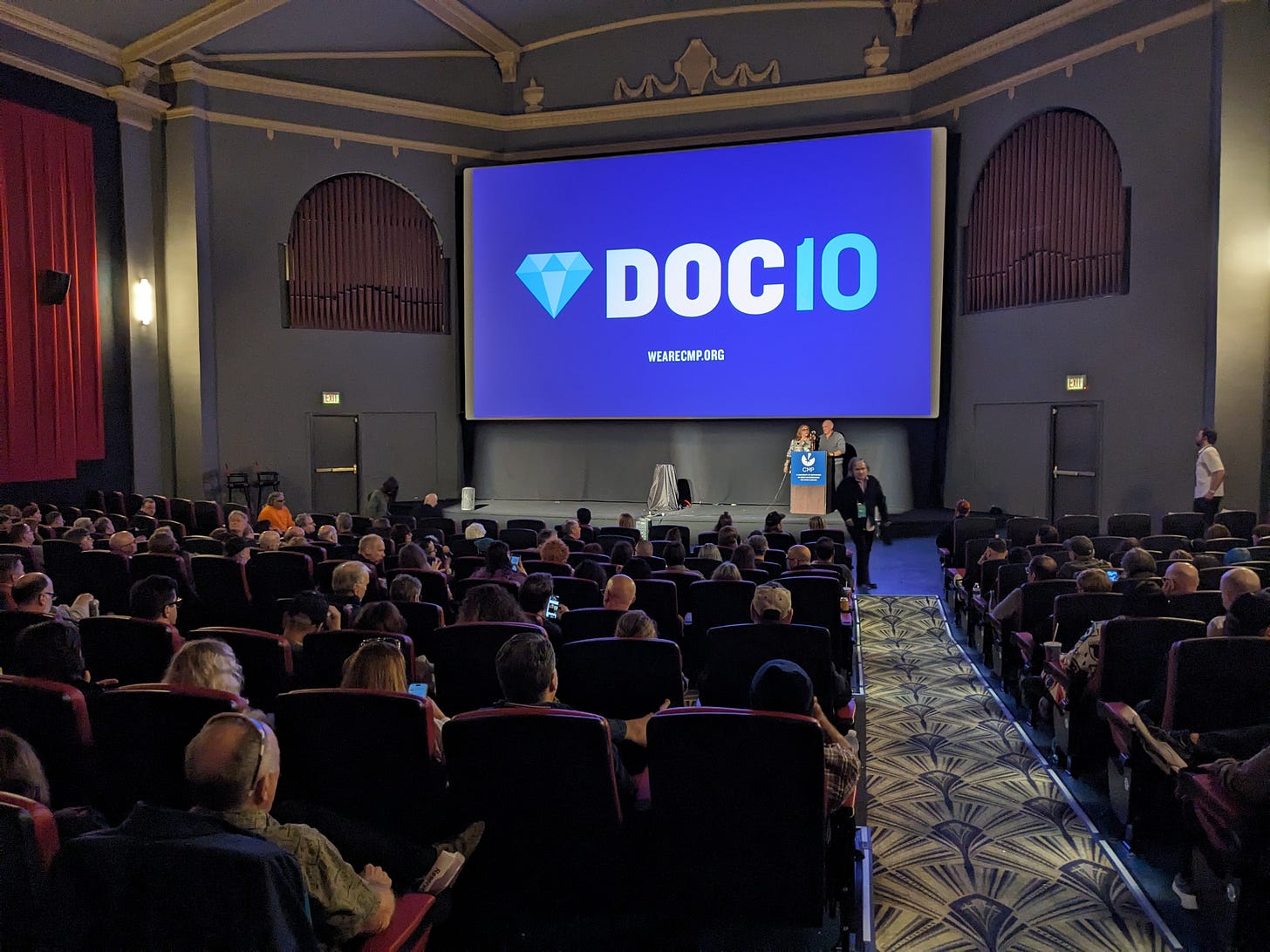Are Film Festivals the New Art-House?
Film festivals are losing sponsors, but audiences are still turning up.
There has been a lot of anxiety around everything in the independent film industry of late, and I’ve been at the forefront of one of the key pillars of this ecosystem: film festivals. I don’t need to rehash the collapses, concerns, and pivots—seems like every day there is more film festival news—but despite all the bad vibes around indie film exhibition, there are silver linings in these annual pop-up film gatherings. And just when you thought film festivals might be dying, all of a sudden new ones are sprouting up.
Just this year, there was the launch of the Los Angeles Festival of Movies, an ambitious program of new and retrospective films (that I’d love to know if people turned out for), and I was surprised to read in Indiewire this morning about another new festival launching in Manchester, Vermont (the Vermont Film & Folk Festival) by MovieMaker Magazine founder Tim Rhys and Filmmaker Magazine co-founder Karol Martesko-Fenster, who both moved to this same small town (don’t be surprised if it makes one of MovieMakers’s best-of festival lists). The town doesn’t even have a movie theater. Considering that the country lost dozens of theaters and over 2,000 screens during the pandemic, this is likely not an anomaly for a lot of towns across the U.S. But if some theaters have been having trouble sustaining an audience for independent films, can film festivals? If Tim and Karol can build it, especially where audiences have been deprived, moviegoers might just come out for it.
From my own experience, it seems so. Last night, we hosted the Opening Night of the Doc10 film festival in Chicago with Chris Smith’s DEVO documentary, and leading up the event I was admittedly worried. Will audiences show up for documentaries in theaters? For the last year, distributors and audiences have been saying, “meh, not really.” But lo and behold, the theater was filled with documentary fans—and, yes, lots of DEVO fans—and we sold out a nearly 300-seat house. Believe me, having screened documentaries in Chicago over the last 10 years, it was not a typical turnout, especially not since the pandemic. And I have to say I was heartened by it.
Would the same number of people come out for DEVO on the opening day of its theatrical release? That, I think, we can still be skeptical of. As one distribution executive told me last fall, “Audiences have not returned, and theaters aren’t booking [documentaries].” But festival hype remains real: the notion of a singular event with special guests; the thrill of a “festive” atmosphere; curated films that have built up a good reputation with a community. These things appear to still deliver people, despite all the agonizing about audiences wanting to stay at home. It’s also worth noting that Doc10’s first two sell-outs, DEVO and COPA ‘71 are targeted at older audiences, the same audience that isn’t supposed to be coming back to theaters (although in full transparency, for both films, we have lots of young audiences, too.)
There’s no doubt that audience viewing habits have changed: The data is clear that there is a large percentage of people who used to go to art-houses on a weekly or monthly basis who don’t anymore. According to some reports, art-house attendance is down some 30% across the country. (UPDATE for those successful art-houses, you know who you are and congrats to you and your loyal followers, you're killing it.) I also know there has been fretting around film festival attendance, too, but from the film festival programmers I’ve talked to, it sounds like audiences have reached pre-pandemic levels at a lot of places.
So I wonder: Could even more and more annual film festival celebrations fill the place left by our empty theaters and empty screens? Could these film events form the foundation for the new theatrical distribution ecosystem that producers and filmmakers have been seeking? By the way, as I’ve noted before, I don’t think this will be achieved by Sundance pop-ups in every small town across America, but perhaps it could be sustained through the film events that already have those ties or are building up those bonds within their local communities.





Hi Anthony, I love this thinking and also these festivals should revenue share off the tickets with the film teams. I understand there is no money in the ecosystem from top to bottom, but sharing on even a small scale becomes important for the artists creating the work for audiences.
I think the reverse is also true. Many art houses now present films the way film festivals have; as special events with guests.